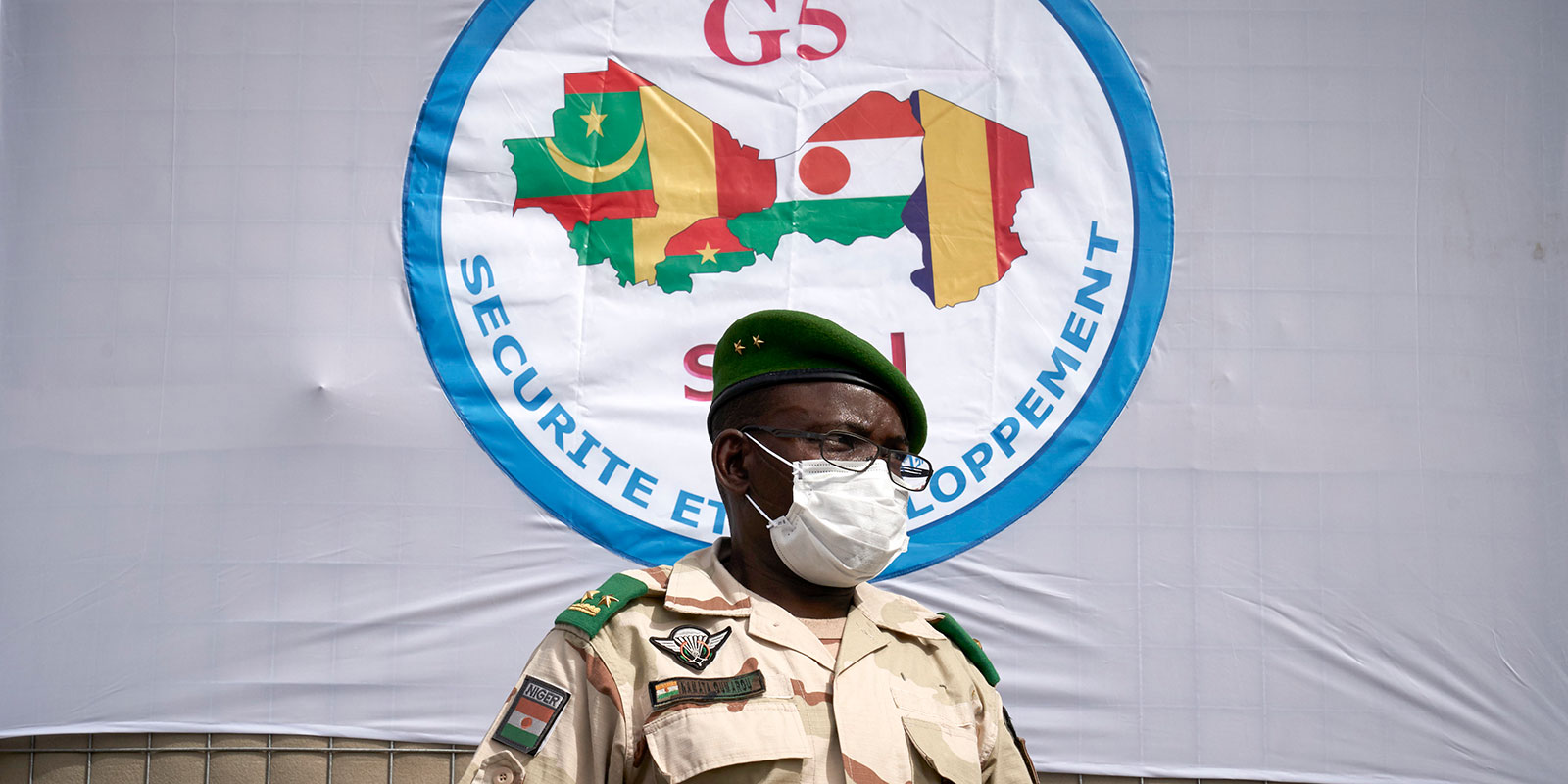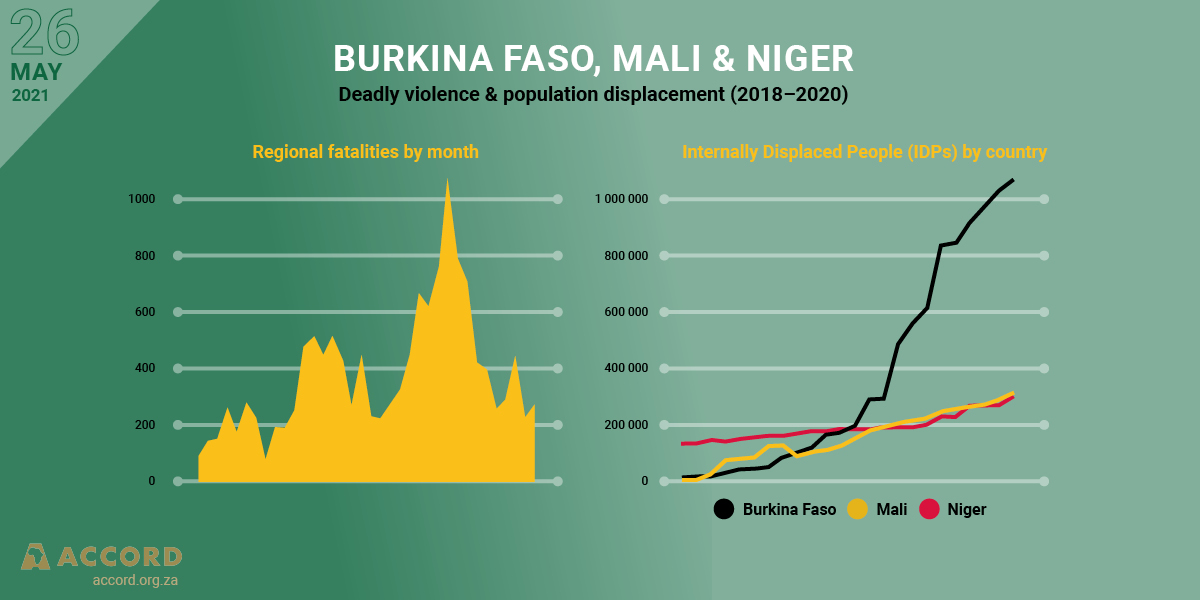The United Nations has provided support to the G5 Sahel Force via MINUSMA since December 2017. This includes fuel, rations, medical evacuation and engineering support, such as building camps. The support is aimed at filling critical gaps that have hindered the mobility and operational tempo of the Force.
International support for @force_g5 can fill critical gaps that have hindered the mobility and operational tempo of the Force @CedricdeConing @JohnKarlsrud
Tweet
In a June 2020 report, the Secretary-General warned that although MINUSMA’s support to the Force has been essential and critical, a number of challenges have prevented the G5 Sahel Force from fully benefitting from the support provided by the UN, and that the current arrangements are not sustainable. In order to overcome these challenges, the Secretary-General has presented three options to the Security Council.
The first option is for a dedicated UN support office funded by assessed contributions. The second is for a dedicated UN support office funded by voluntary contributions via a trust fund. The third is for a continuation of the current MINUSMA arrangement, but with an expansion of its mandate that would allow it to operate in all the G5 Sahel countries.
In his May 2021 report to the Council, the Secretary-General reports that the G5 Sahel Force continues to face major challenges to its operational and logistical capacities, and that the reliance on voluntary financial contributions raise concerns with respect to the predictability and therefore sustainability of resourcing. The Secretary-General reports that the G5 Sahel Force and partners view the UN support as essential and reiterates his call for a more comprehensive solution that ensures predictable funding for the operations of the Force.

Drawing on lessons identified from the support provided by the UN to the African Union Mission in Somalia (AMISOM), and a wide number of experiences with voluntary funded trust funds in other mission support settings, we discuss a few political, financial, doctrinal, human rights and operational considerations.
From a political perspective, there is no shortage of Sahel strategies, however one major shortcoming is that there is no overall strategic vision and framework for cooperation among the various parallel missions and across the security-development-humanitarian nexus. The effort to negotiate and design a UN support package for the G5 Sahel Force may create an opportunity for the Security Council to align key stakeholders in the Sahel behind one overall shared vision and a set of shared objectives. Such an initiative will be key to ensure political primacy and help to shift the focus away from a short-term hard security pre-occupation with combating terrorism to a more medium to long-term holistic strategy aimed at sustaining peace, enhancing development and managing climate-related peace, security and development risks.
Negotiating a UN support package for @force_g5 may create an opportunity for the Security Council to align key stakeholders in the #Sahel behind a shared vision and a set of objectives @CedricdeConing @JohnKarlsrud
Tweet
From a doctrinal perspective, UN support to the G5 Sahel force via MINUSMA makes the distinction between peacekeeping and counter-terrorism operations difficult to discern for policymakers and practitioners, and almost impossible for local populations. A dedicated support office will remove the direct role of MINUSMA and help to maintain this distinction.
The UN’s operational support capability is the most advanced of any international or regional organisation, but it is designed for peace operations. This limits the kind of support the UN can provide to combat operations. The wear and tear of combat operations like the G5 Sahel Force on material, the pace of re-supply and the need for casualty evacuation support is significantly higher than in UN peacekeeping operations. One of the clearest recommendations from studies of UNSOA/UNSOS has been the need to create a separate set of rules, procedures and frameworks for UN support to peace enforcement operations like AMISOM and the G5 Sahel Force.
From a financial perspective, a support office for the G5 Sahel Force could be financed from assessed contributions and from voluntary contributions via a UN trust fund. In all the cases where trust funds have been used to support African-led operations in the past, voluntary support fell far short of operational needs and this led the AU to conclude in 2015 that trust funds are neither reliable, predictable nor easily accessible. If such a support office is funded from assessed contributions it would signal that the use of assessed contributions to support African Union or African-led operations has progressed from an exception (AMISOM) to a practice. The AU and A3 have in principle sought Council approval for this practice since 2015, and considerable joint AU-UN work has gone into developing a range of options, but the US, with the support of some of the other permanent members of the Security Council, have not been willing to take that step to date, with the US even going so far as to threaten to veto a resolution in 2018. At a Security Council meeting held on 18 May, the new Biden Administration stated that assessed contributions are not a viable source of financing for the G5 Sahel Force and argued for maintaining the status quo.
A UN support office for @force_g5 funded from assessed contributions appears to be the only solution for reliable and predictable funding and support, for those logistical needs that cannot be met by the G5 Sahel countries themselves, or via bilateral support @CedricdeConing @JohnKarlsrud
Tweet
From a human rights perspective there is concern about the track record of some of the armies that make up the G5 Sahel Force. For example, in Mali, a third of the civilian casualties can be attributed to government forces, slightly more than what can be attributed to Jihadist groups. A UN support package can be used to further strengthen the new Casualty and Incident Tracking and Analysis Cell of the G5 Sahel Force that was officially launched in Bamako on 27 January 2021. Coupled with continued and enhanced support from the UN High Commissioner for Human Rights, the new cell and related compliance framework should help to reduce civilian casualties and enhance compliance with the UN’s human rights due diligence policy.
In light of these considerations, we find that a UN support office funded from assessed contributions, complimented with voluntary contributions, appears to be the only solution for reliable and predictable support to those core needs of the G5 Sahel Force that cannot be met by the G5 Sahel countries themselves, or via bilateral support to those countries.
Cedric de Coning and John Karlsrud are both research professors with the Norwegian Institute of International Affairs’ (NUPI). Cedric de Coning is also a senior advisor to ACCORD. This extract is based on their report on ‘Enhancing the Effectiveness of the G5 Sahel Force by Strengthening Strategic Coherence and International Support.’



